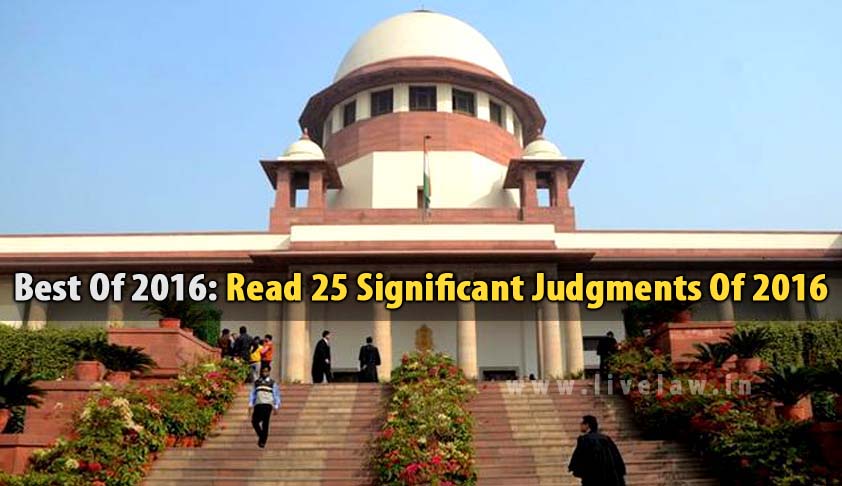Best Of 2016: Read 25 Significant Judgments Of Supreme Court of India in 2016
Ashok KM
30 Dec 2016 9:43 PM IST

Next Story
30 Dec 2016 9:43 PM IST
In 2016, the Supreme Court has pronounced over thousand judgments, and it is pleasure to announce the Live Law has reported most of it. While all of them are significant, as it comes from the Apex court of the country whose rulings have a force of law, some are more significant in view of the subject it dealt with and also the law it laid down. Following is a list of such 25...
